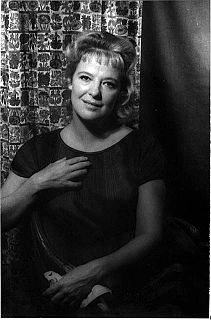A Quote by Frederick Lenz
The whole objective universe is created, ordered, by our perception and by our sense of self.
Quote Topics
Related Quotes
We call our intuition our sixth sense, but in reality it would be called our first sense, because it's rooted in quantum nature of reality. It was around long before our solar system and our planetary system were even formulated or even organized. It is at the basis of how our normal sensing works. So instead of being our sixth sense or even â€" using the parapsychological term â€" "extrasensory perception," it's not. It's at the basis of our perception, and that's the quantum world.
What a dull universe it would be if everything in it conformed to our expectations, if it held nothing to surprise or baffle us or confound our common sense. A century ago no one foresaw the existence of black holes, an expanding universe, oceans on Jupiter's moons, or DNA. What could be more enriching than to know that we share a common origin with all living things, that we are kin to chimpanzees, redwoods and mollusks? And isn't it a source of wonder to realize that the iron in our blood and the calcium in our bones were created in the bellies of supernovas?
At times many of us let that enemy of achievement--even the culprit 'self-defeat'--dwarf our aspirations, smother our dreams, cloud our vision, and impair our lives. The enemy's voice whispers in our ears, 'You can't do it.' 'You're too young.' 'You're too old.' 'You're nobody.' This is when we remember that we are created in the image of God. Reflection on this truth provides a profound sense of strength and power.
Without an observer at a twenty three degree angle to the light being reflected off a cloud of spherical droplets, there is no rainbow. The whole universe is like that. Our spirits stand at a twenty three degree angle to the universe. There is some new thing created at the contact of photon and retina, some space created between rock and mind.
Our brain and our whole nervous system and our whole body are only created in relation to other people and to the environment. So what we have here is an enormously complex notion of both consciousness and unconsciousness. That's why these models get very difficult, because you can't reduce our subjective and intersubjective experience to neural reductions.
Heroes are necessary in order to enable the citizens to find their own ideals, courage and wisdom in the society. The hero carries our hopes, our aspirations, our ideals, our beliefs. In the deepest sense the hero is created by us; he or she is born collectively as our own myth. This is what makes heroism so important: it reflects our own sense of identity and from this our own heroism is molded.
Whether or not enlightenment is a plausible goal for us is a vital question for our lives. If it is possible for us to attain such perfect enlightenment ourselves, our whole sense of meaning and our place in the universe immediately changes. To be open to the possibility is to be a spiritual seeker, no matter what our religion. Enlightenment is not meant to be an object of religious faith. It is an evolutionary goal.
Our life of contemplation shall retain the following characteristics: —missionary: by going out physically or in spirit in search of souls all over the universe. —contemplative: by gathering the whole universe at the very center of our hearts where the Lord of the universe abides, and allowing the pure water of divine grace to flow plentifully and unceasingly from the source itself, on the whole of his creation. —universal: by praying and contemplating with all and for all, especially with and for the spiritually poorest of the poor.
To science we owe dramatic changes in our smug self-image. Astronomy taught us that our Earth is not the center of the universe, but merely one of nine planets circling one of billions of stars. From biology we learned that humans were not specially created by God but evolved along with tens of millions of other species.


































